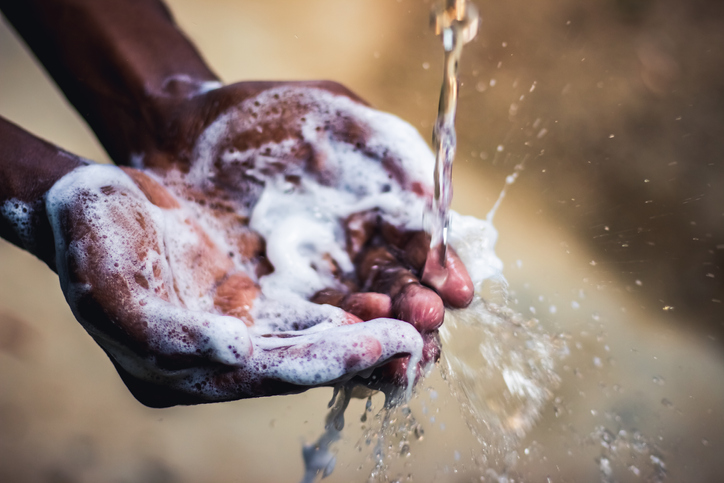2021 Yep keep washing those hands

Hand Washing. Man washing his hands in the garden at home. Corona virus pandemic prevention wash hands with soap warm water and rubbing nails and fingers washing frequently. Hygiene & Cleaning Hands.
Keep Washing Your Hands For Safety
Washing your hands is one of the best common sense behaviors and hygienic practices that you can follow, in order to ensure personal as well as public safety. It is now a commonly promoted, advocated and practiced behaviors to minimize safety risks in a world that is grappling with the outbreak of the Covid-19 pandemic and its aftermath. Find out when exactly you should wash the hands. Watch our video timed for 36 seconds.
Food preparation and eating
Keep washing those hands, it is important to wash hands properly, with a hand sanitizer, prior to, during as well as after the preparation of foods. Also, before and after you eat foods, you should practice this tidiness behavior – in order to ensure complete safety and hygiene.
Self-care or caring for others
You must also wash hands before and even after caring for anybody at home, who is found to be sick with diarrhea or is found to be vomiting. Also, before and after you treat a wound or cut that you, or someone in your home or surroundings have suffered, hand-washing is essential. This can prevent infection of any type, and ensure better safety and health – which is especially important in these times of pandemic.
After toilet
Right after you use the toilet, each and every time, you must wash the hands. It is also important to do this after cleaning up a child or little one who has used the toilet or after changing the diapers of a baby. This does not apply only to toilet hygiene. Even after you sneeze, cough or blow your nose, you have to do this.
After touching waste matter
After you touch animal waste, animal feed or even an animal or its carcass, you have to tidy up your hands with a soap or sanitizer. This also applies when you touch garbage, or handle pet treats or foods allocated for the consumption of pets.
While the COVID-19 pandemic is still on, to prevent the spread of germs, keep washing those hands, you must use soap and water to wash your hands for 20 seconds at least or make use of a hand sanitizer that contains 60% alcohol at least, for cleaning up hands prior to and after the activities aforementioned. Clean hands can actually help stop the spread of germs from one individual to the other as well as throughout a whole community— from the home, office etc to hospitals and childcare facilities. It is a basic but important way to ensure safety.




